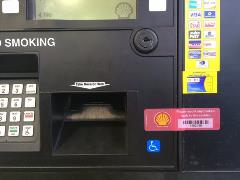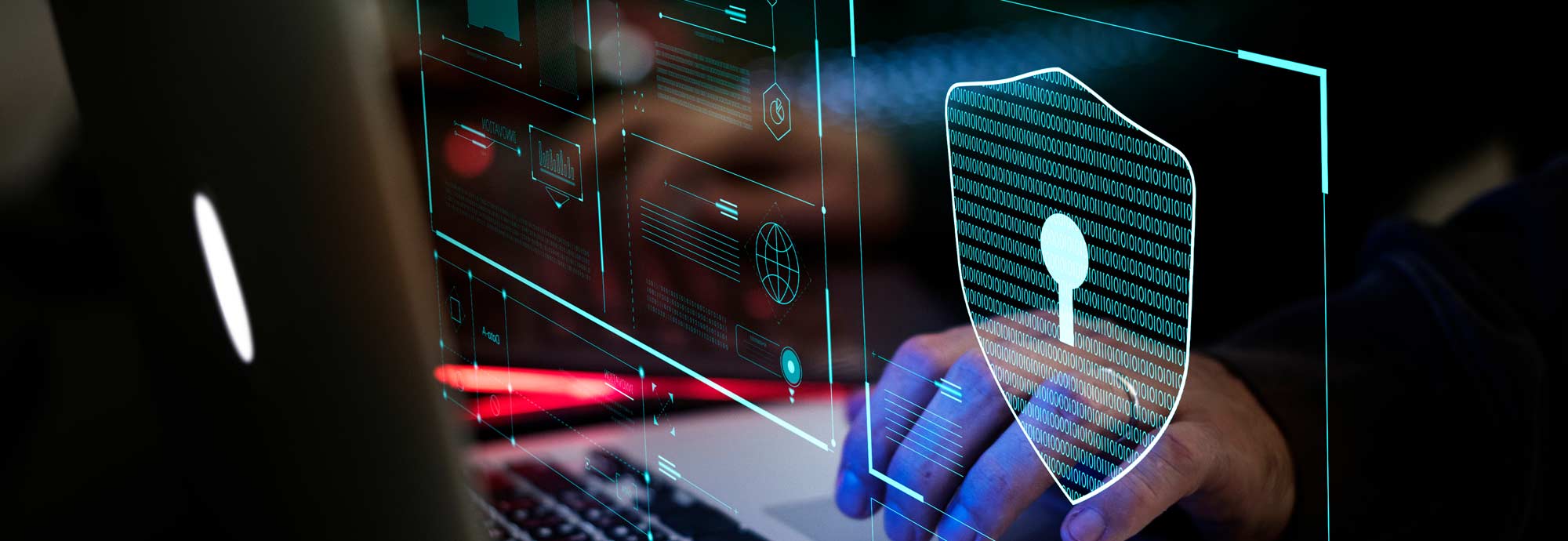Security Alerts
Scams and fraudulent activity we've seen locally
In addition, please visit the Federal Trade Commission's SCAM ALERTS page for other current and ongoing scams that could affect you.
Scam Alert 2/10/2023
We've seen a recent increase in email and phone scams. The most recent started as an email from a payment provider describing an unauthorized charge and provided a contact number for "support". This fake phone number then lead to the supposed "Financial Plus Fraud Department" being included on the call. From there they tried to convince the member that they were investigating scams involving an FPCU employee with the intent of preventing the member from talking to us. They then gained access to the member's online banking by asking them to install an app which let them take over and transfer a large sum of money to the members checking account. This was in preparation for them to have the member come in to our office and wire the money to an account they specified. When they came in with the wire request, our team recognized the scam after a few questions and we were able to intervene.
If you receive a call, text or email that...
- Describes an unfamiliar charge or action they claim you may have taken
- Is from an unfamiliar phone number or email address
- Warns of arrest or legal action
- Demands or requests immediate payment
- Is using scare tactics to force you in to action
- Requires payment by gift card, prepaid debit card, internet currency, or by mailing cash
- Pressures you for personal information
- Requests secrecy
- Threatens to seize your bank account
- Asks you to install any computer software or to provide them with control over your computer or accounts
- Tries to gain your trust by providing fake "documentation" or false "evidence"
...it is a SCAM!
Do not give scammers money or personal information – Ignore Them!
- Do not provide anyone with money or personal information when you feel pressured, threatened, or scared.
- Do not take part in the action they ask you to take.
- Hang up on these phone calls and ignore these types of texts or emails.
- Always contact Financial Plus calling our main office phone number. Never trust unfamiliar phone numbers, email addresses, links, other calls to action, etc.
SCAM ALERT
The Social Security Administration will never threaten, scare, or pressure you to take an immediate action.
If you receive a call, text, or email that...
- Threatens to suspend your Social Security number, even if they have part or all of your Social Security number
- Warns of arrest or legal action
- Demands or requests immediate payment
- Requires payment by gift card, prepaid debit card, internet currency, or by mailing cash
- Pressures you for personal information
- Requests secrecy
- Threatens to seize your bank account
- Promises to increase your Social Security benefit
- Tries to gain your trust by providing fake "documentation," false "evidence," or the name of a real government official
...it is a SCAM!
Do not give scammers money or personal information – Ignore Them!
- Try to stay calm. Do not provide anyone with money or personal information when you feel pressured, threatened, or scared.
- Hang up or ignore it. If you receive a suspicious call, text, or email, hang up or do not respond. Government employees will not threaten you, demand immediate payment, or try to gain your trust by sending you pictures or documents.
Prepare Yourself for Holiday Scams
- Never give an unsolicited caller remote access to your computer.
- Only call your institution via the phone numbers available on our public website.
- Do not provide your online banking log in credentials, one-time password, account number or personal information by email, text or phone call. Only use your published phone number to reach out to your financial institution to confirm that the request is legitimate.
- Never give out information to callers requesting information you received via text. We will never request this information or pressure you to reset your online banking log in password. You should end the conversation with the scammer without supplying any personal information.
- Never click on links in unsolicited emails or texts. Phishing is when scammers send emails or text messages that appear to be from a reputable company and are not.
- Do not respond to texts, calls or emails for one-time passcode authorizations that you did not request or validate the login.
- Never trust caller ID as caller ID may be modified to show your financial institution’s name.
- Do not give information over the phone if you receive a call stating that a transaction is canceled, even if the caller claims to be from your financial institution. Once again, you should contact your financial institution using a published phone number to inquire about the transaction.
Coronavirus/Covid-19 Scams UPDATED 3/30/20
With the recent outbreak of Coronavirus/Covid-19, scammers are taking aim at the fear caused by the outbreak and trying to take advantage. Please read the following to help guard against these scams, learn what steps to take if you feel you have been targeted and visit the resource links provided at the end for more information.
Scams that have surfaced so far include:
- Downloadable Coronavirus maps containing malicious software such as ransomware
- Claims to having vaccines, home test kits, PPE and health related supplies or cleaning supplies
- Work at home schemes
- Get money fast claims
- Scammers posing as charities looking for donations
- Claims to getting government checks faster
These scams can be delivered in a variety of ways including phone calls, emails, text messages, social media messages, social media ads, web sites and web site ads, etc.
Best practices with these scams include:
- Do not click on links from suspicious emails, web pages, or through social media
- Do not answer phone calls from suspicious phone numbers
- Hang up on suspicious callers if you answered
- Do not follow guided menus on suspicious calls (such as "select 1 for...")
- Do not respond to suspicious text messages or social media messages
To keep up with Coronavirus scams, please visit the Federal Trade Commission (FTC) web page "Avoid Coronavirus Scams".
In addition you can monitor all types of scams.
Phone Scam Alert UPDATED 12/15/17
We are again seeing FPCU members receive fraudulent phone calls from what is appearing as FPCU's phone number on caller ID. These calls may vary in what is said or requested but recent calls have stated that your account has been compromised. FPCU will never call a member and request personal information. Please be aware of these fraudulent calls and NEVER provide personal information to the caller. If in doubt, please hang up on the caller and call FPCU directly with any questions or concerns regarding suspicious calls.
Phone Scam Alert UPDATED 6/20/17
We have been made aware of FPCU members receiving fraudulent phone calls from what is appearing as FPCU's phone number on caller ID. These calls may vary in what is requested but recent calls have stated that the member has won a prize and will lead to the caller asking for personal information. FPCU will never call a member and request personal information. Please be aware of these fraudulent calls and NEVER provide personal information to the caller. If in doubt, please hang up on the caller and call FPCU directly with any questions or concerns regarding suspicious calls.
VISA Credit Card Fraud Alert UPDATED 2/3/17
In recent weeks there have been several reports of fraudulent charges from New York on FPCU VISA credit cards. In response we initially blocked all FPCU VISA credit card charges from New York. As of 2/3/17 we have lifted the block for online purchases but it remains in effect for in store purchases. If you have any questions, please contact us today!
Gas Pump Credit Card Skimming Alert - 9/20/2016
There have been several credit card skimmers found inside of gas station pumps in Peru, Ottawa, Morris, and Plainfield within the past week. Skimmers are small devices that can scan and store credit card data from the magnetic stripe. Crooks can install skimmers on a gas pump out of sight of customers. Once the card is run through the skimmer, the data is recorded and later utilized to create counterfeit cards.
To avoid skimming only use pay at the pump at locations that mark their pumps with tamper proof stickers outside the credit card reader or pay inside. If this seal is cut, damaged or broken, do not use that pump and report it to the gas station attendant.

Fraud Alert
You may be getting scammed!
Are you cashing or depositing a check for any of these reasons:
- Items Sold on the internet
- Is the amount of the check more than the item's selling price?
- Is the check drawn on an account that's different from the person buying your item or product?
- Winning a Lottery you never entered
- Work at Home Program
- Commission for accepting funds through your bank or PayPal
Have you been asked to:
- Return some of the check proceeds?
- Wire, Western Union or money gram some of the funds to someone?
- Send money overseas?
- Pay money to receive an inheritance?
Have you responded to an email requesting you to:
- Confirm, update, or provide your account information?
If you answered YES to any of the above, please contact us today!


 Wiley Wabbit
Wiley Wabbit  TNT Tweens n' Teens
TNT Tweens n' Teens 
 Online Loan Application
Online Loan Application Mobile Banking
Mobile Banking
 Join Us
Join Us Locations
Locations